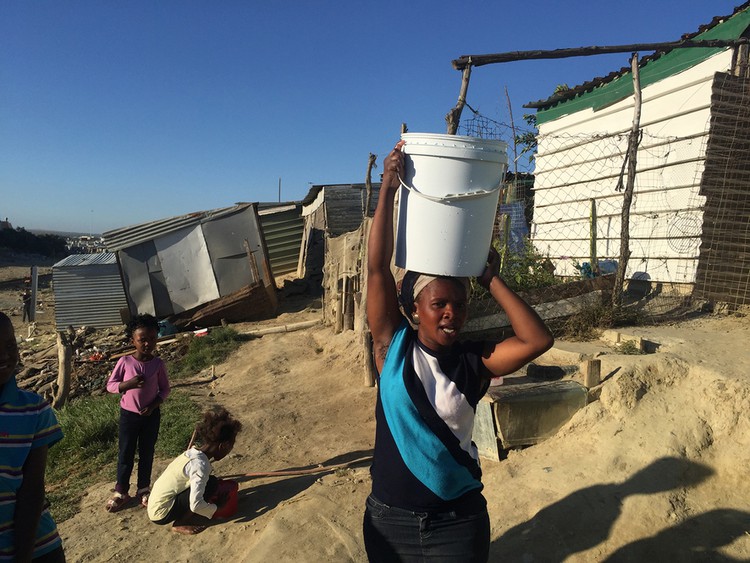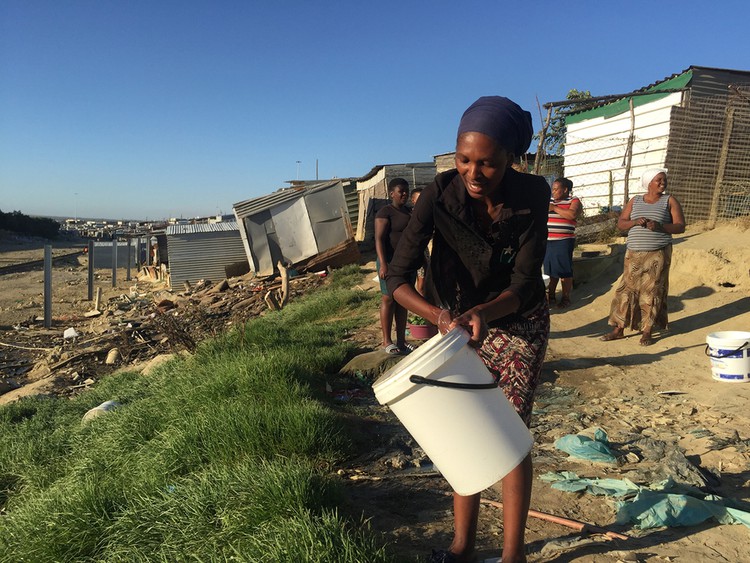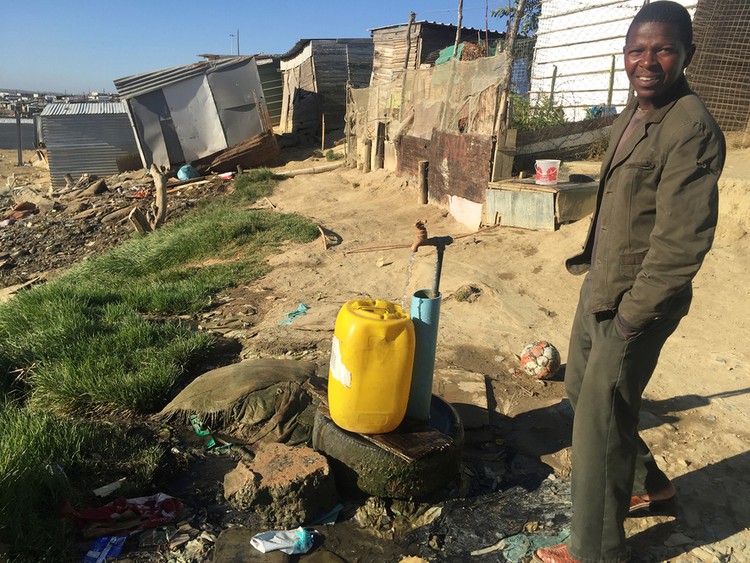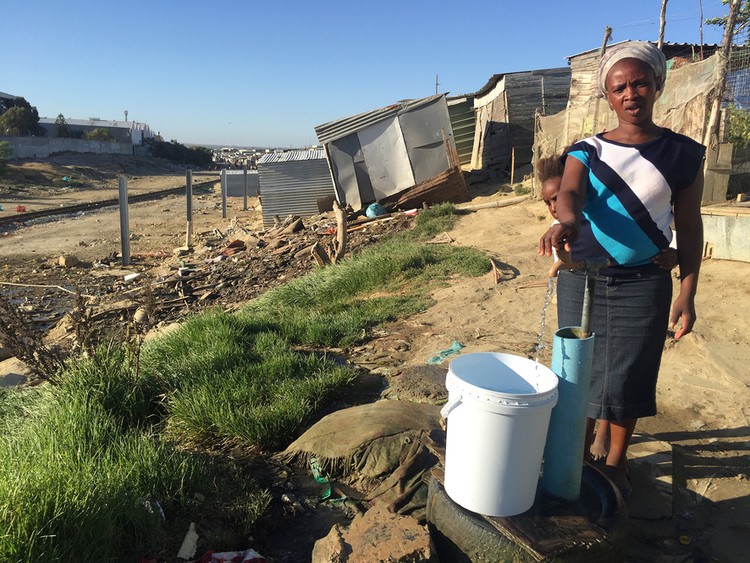It’s already Day Zero in Siyahlala
Living with 20 litres of water a day
For 34-year-old Vuyiseka Njanjala, nothing will change when Day Zero hits drought-stricken Cape Town. Her taps will not run dry, because she has none. She will not have to flush her toilet with a bucket, because she has no toilet.
Njanjala lives in the sprawling informal settlement of Siyahlala, along the railway line running from Potsdam Road through the back of Dunoon’s houses to the N7 in Cape Town. Here, hundreds of families share one standpipe for water.
Njanjala shares her two room shack with three young children and her husband.
Every third day, she says, she walks about 800 metres to the tap and back.
“In the morning there is a long queue of people seeking to collect water.”
She has been collecting water at the tap since she moved here in 2007.
She told GroundUp that she makes three trips, collecting a 20-litre bucket of water each time, and carrying it back on her head. The 60 litres of water last for three days.
Every morning, she boils water in a 1.5 litre kettle and mixes this with cold water to bath her three children in the same water. She applies soap to a small bath towel, repeatedly rinsing the soapy towel in the water, until the children are clean and ready to go to school.
For herself she also uses 1.5 litres of water boiled in a kettle and cooled with a similar amount of water, also using a small towel.
At the end of her wash, she stands in the basin to wash her feet. Then she throws the water away.
Njanjala says she doesn’t recycle the bath water. If she could, she would use it to water plants but there is no space to plant flowers in front of her home. And her shack has no cement floor to mop.

Phelisa Tafeni shares her three room shack with five children and her husband. In their home, Tafeni says, they use 20 litres of water a day and this is enough for bathing, cooking and washing dishes.
She says after washing her dishes she shares the soapy water with other residents who also use it to wash their dishes. The soapy dish-washing water makes the rounds among homes, and at the end of the line it is used to wash buckets used to fetch water at the tap.
“It’s a long time since I realised that it is wrong to throw away soapy dish water after washing the dishes. We share among neighbours,” says Tafeni.

Andile Skuthalo is a bachelor. He collects water in a 25 litre jerrycan and says it is enough for drinking, cooking and bathing for three days.
He uses three litres of water to wash with.
When he has laundry, he says, he uses half a jerrycan of 25 litres to soak clothes and the the remaining half to rinse them before hanging the clothes on a line to dry.
Siyahlala residents have no toilets, says community leader Thembinkosi Janda. They cross the railway line and use the bushes as a toilet.

Support independent journalism
Donate using Payfast

Next: Parents blame unqualified teacher for poor results
Previous: Dlamini defends her decision to ignore legal advice
© 2018 GroundUp. 
This article is licensed under a Creative Commons Attribution-NoDerivatives 4.0 International License.
You may republish this article, so long as you credit the authors and GroundUp, and do not change the text. Please include a link back to the original article.

